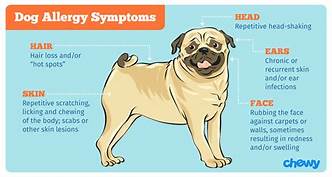How to Get Tested for Pet Allergies
Pet allergies are a common problem, and they can be very frustrating to deal with. If you think you might be allergic to pets, it's important to get tested so you can get the treatment you need.

What are the symptoms of pet allergies?
The most common symptom of pet allergies is a runny nose. Other symptoms can include:
- Sneezing
- Itchy, watery eyes
- Coughing
- Wheezing
- Shortness of breath
- Hives
- Eczema
How are pet allergies diagnosed?
Pet allergies are diagnosed with a skin test or a blood test. A skin test is the most common way to test for pet allergies. During a skin test, a small amount of an allergen is injected into the skin. If you are allergic to the allergen, you will develop a raised, itchy bump at the injection site.
A blood test can also be used to test for pet allergies. A blood test measures the level of antibodies in your blood that are specific to pet allergens. If you have a high level of these antibodies, it is likely that you are allergic to pets.
How are pet allergies treated?
There is no cure for pet allergies, but there are a number of treatments that can help to reduce your symptoms. These treatments include:
- Avoidance: The best way to avoid pet allergies is to avoid contact with pets. If you have a pet, you should keep it out of your bedroom and other areas where you spend a lot of time.
- Medication: There are a number of medications that can help to relieve the symptoms of pet allergies. These medications include antihistamines, decongestants, and corticosteroids.
- Immunotherapy: Immunotherapy is a treatment that can help to desensitize you to pet allergens. During immunotherapy, you will receive a series of injections that contain small amounts of pet allergens. Over time, this will help to reduce your allergic reactions to pets.
When should I see a doctor?
You should see a doctor if you have symptoms of pet allergies that are interfering with your daily life. Your doctor can help you to diagnose your allergies and recommend the best treatment for you.
Declaration: All article resources on this website, unless otherwise specified or labeled, are collected from online resources. If the content on this website infringes on the legitimate rights and interests of the original author, you can contact this website to delete it.





